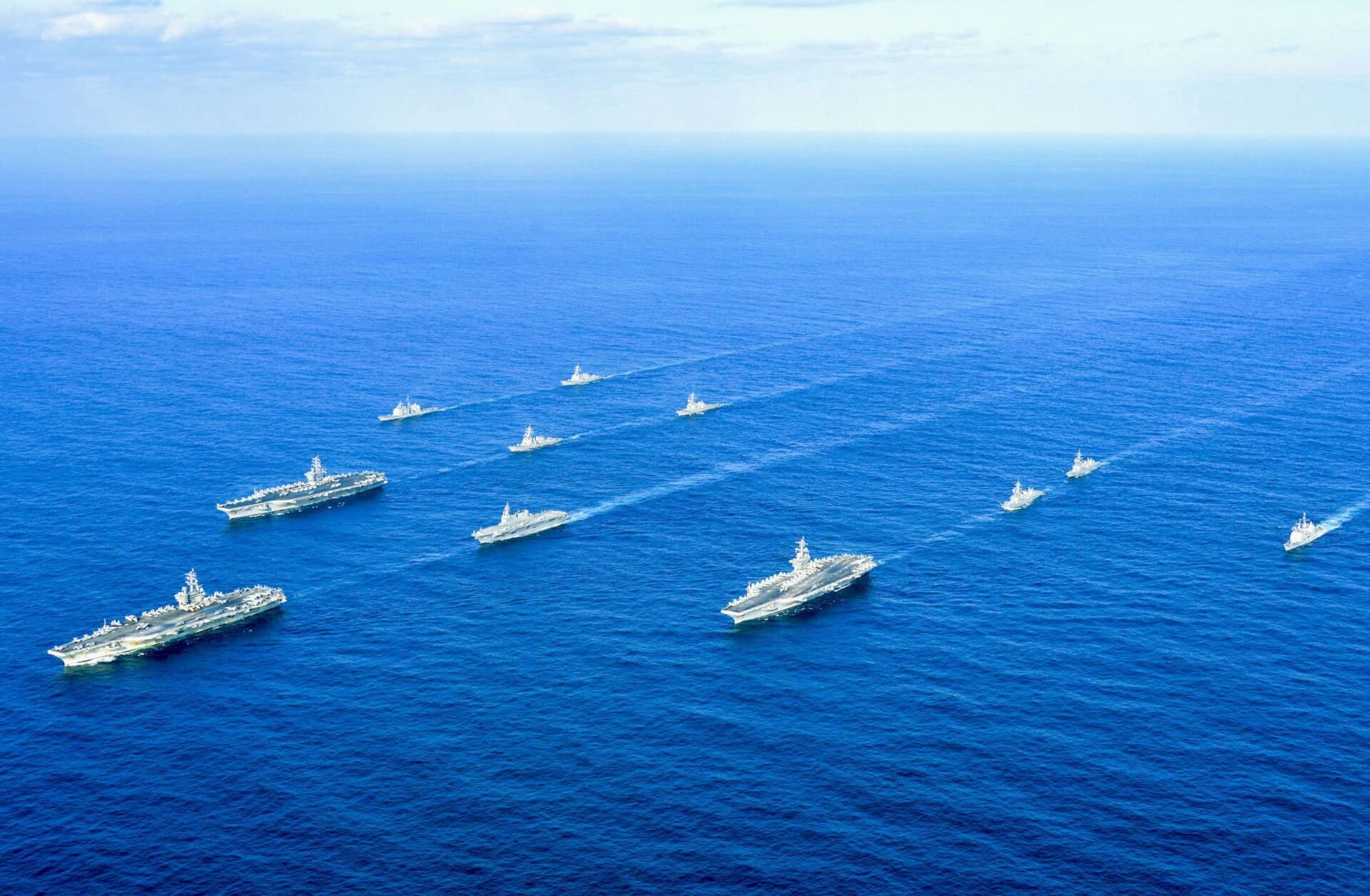Russian submarines in the Sea of Japan fired cruise missiles during exercises, Japan’s Ministry of Defence reported on Thursday, just a day after Moscow accused Tokyo of supporting neo-Nazi groups in Ukraine.
The ministry said that two submarines off far eastern Russia, the Petropavlovsk-Kamchatsky and the Volkov, fired Kalibr cruise missiles from underwater at a target in the East Sea. The ministry also posted video footage showing the missiles rising out of the water as the submarine crews simulated an attack scenario.
Japan strongly condemns Russia's missile attack on the railway station in the eastern Ukrainian city of Kramatorsk, which killed many innocent civilians trying to evacuate the city. The killing of innocent civilians is a war crime and it is absolutely intolerable.
— MOFA of Japan (@MofaJapan_en) April 9, 2022
The missile firing is the latest in a series of provocations between the two countries, whose tensions have been running high in recent weeks. Japan initially angered Russia by joining its Western allies to impose tough sanctions over its invasion of Ukraine. Just last Friday, Tokyo announced a fresh round of sanctions, which included a ban on Russian coal, a significant energy import, as well as machinery and vodka.
In fact, even though Tokyo is known for its strict policies to curb immigration, it has opened its doors to several hundred Ukrainian refugees fleeing the war and has sent non-lethal military aid to Kyiv.
Furthermore, last Friday, Tokyo announced the expulsion of eight Russian diplomats over “war crimes” in Ukraine. “Russian troops have killed civilians and have attacked nuclear facilities, gravely violating international humanitarian law. These are war crimes that can never be forgiven,” Japanese Prime Minister Fumio Kishida told the media. PM Kishida’s administration has also assured that Tokyo will support international efforts to investigate Moscow’s aggression at the International Criminal Court.
The Main Investigation Department of the Ministry of Justice of Japan has removed Azov Battalion from its list of terrorist organizations, where it was previously described as a Neo-Nazi group. pic.twitter.com/yhbE2c73dp
— Maria Dubovikova (@politblogme) April 9, 2022
The row between the two countries further deepened when Tokyo removed the Azov battalion from its list of neo-Nazi organisations. The group has been accused of several war crimes in Ukraine, including the killing of civilians and trying to shift the blame onto the Russian army and killing Russian prisoners of war. However, Tokyo’s Public Security Intelligence Agency apologised for the “misinformation” generated by its previous designation as a neo-Nazi group.
Russian Foreign Ministry spokesperson Maria Zakharova responded to the move on Wednesday by accusing Tokyo of being “an accomplice of neo-Nazism.” The spokesperson said that Japan’s “cynical attitude towards an important aspect” of the Ukraine war was “highly surprising.” “It appears that they have promptly forgotten that the Azov battalion had perpetrated numerous bloody crimes in Donbas. By whitewashing terrorists and neo-Nazis, Japan impairs its own security in the first place,” she said. The spokesperson went on to say that it was “not the first time” that the Japanese government sided “with inhuman regimes.” “Japan has failed to learn a lesson from its alliance with Nazi Germany,” she declared.
Similarly, Russian Ambassador to Japan Mikhail Galuzin said that the decision stems from the Japanese society being under “strong pressure of the anti-Russian propaganda.”
Japan has Officially Stated after negotiation between the two Countries since the end of WW2 recently entirely collapsed that the entire Kuril Island Chain is Japanese Sovereign Territory and is being Illegally Occupied by Russian Forces. pic.twitter.com/rkX5zOTnmy
— OSINTdefender (@sentdefender) March 31, 2022
Tokyo and Moscow’s relationship was complicated even before the onset of the war in Ukraine. Both countries have yet to formally call an end to World War II, as they have not signed a post-war peace treaty. The effort has been hampered by their longstanding dispute over the Moscow-controlled Kuril islands, which Japan calls the Northern Territories. Japan’s offensive manoeuvres against Russia since its invasion of Ukraine prompted the Kremlin to announce in March that it had abandoned diplomatic efforts to reach the peace treaty.

